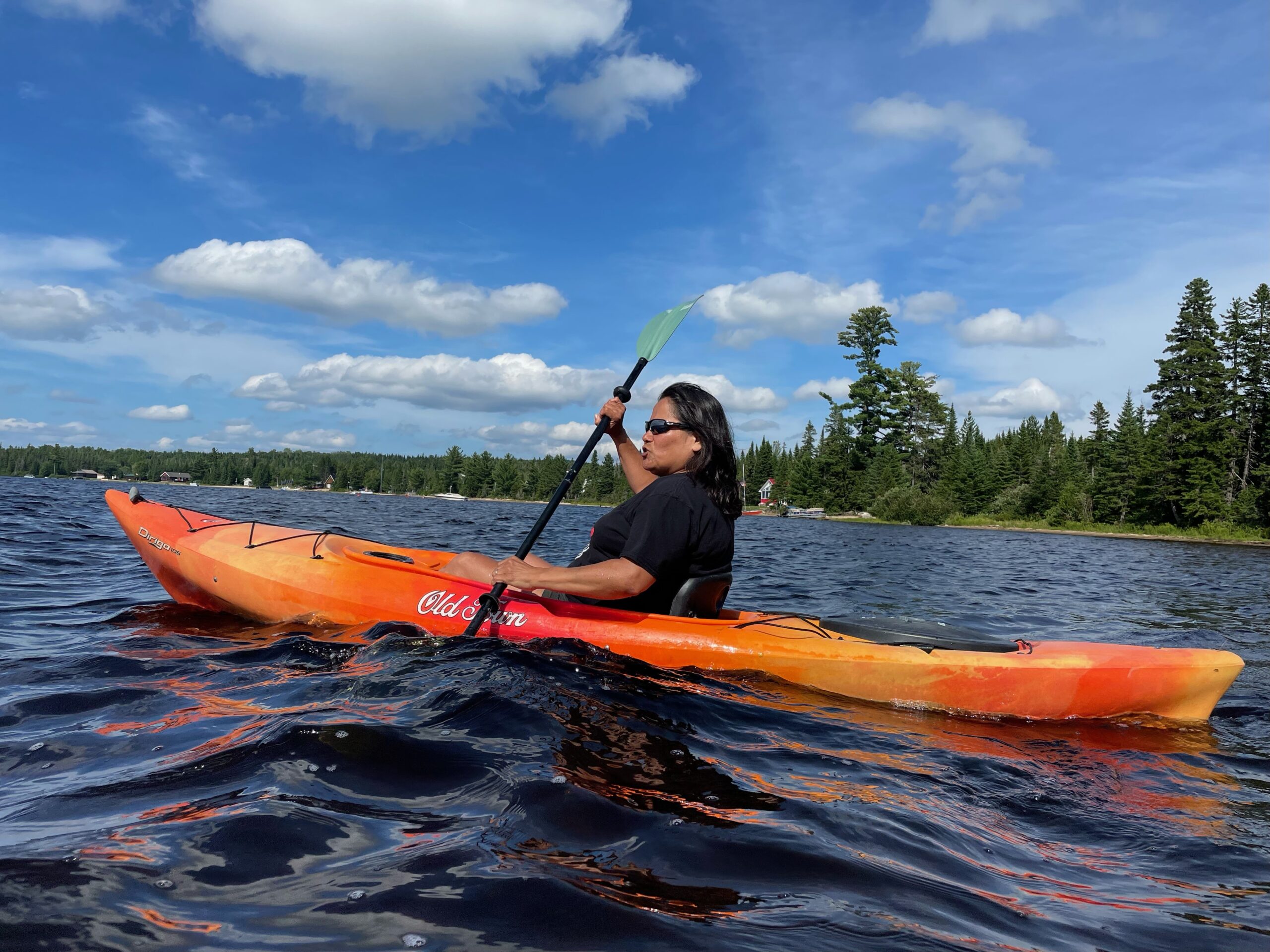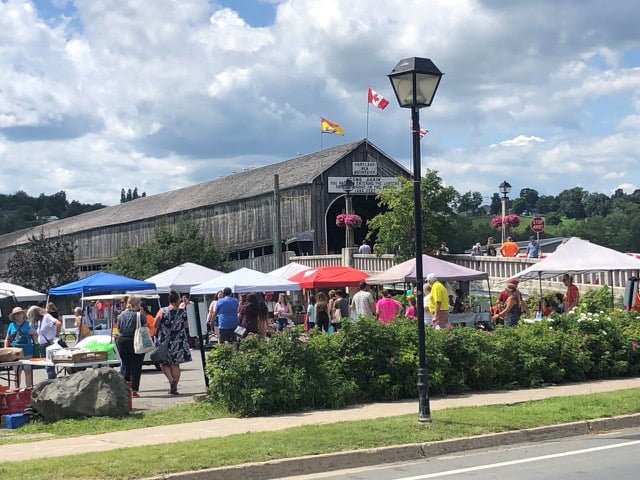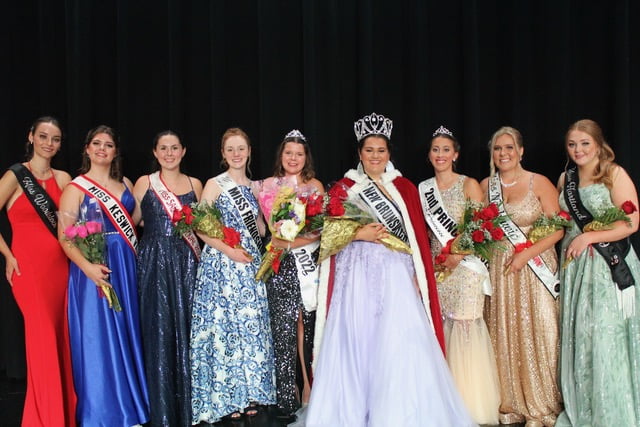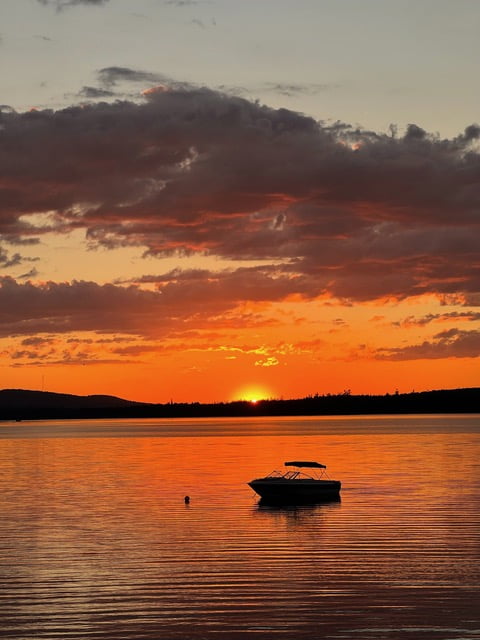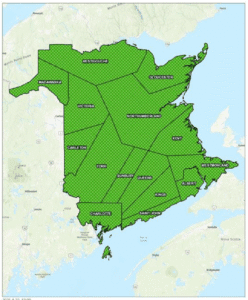Cottage owners and others welcome the decision to end plans to use rotenone as a poison pill option
Cottage owners surrounding Miramichi Lake are breathing a sigh of relief, knowing they can enjoy the end of the summer vacation season calmly and serenely, which befits their holiday location.
For the last two years, most cottage owners and local Indigenous groups battled on the water and in the courts to stop a working group’s plan to treat the lake and surrounding waterways with Noxfish II, with the active ingredient rotenone.
The working group, including the Atlantic Salmon Federation and the North Shore Mi’kmaq Tribal Council, proposed the radical treatment as the only means to eradicate smallmouth bass, considered an invasive species.
While the treatment would kill most fish and other natural inhabitants of the treated waterways, the working group contended native species would return through restocking and natural means.
Cottage owners like Austin Greenway and his family look forward to a peaceful autumn at the cottage.
Sitting on his cottage deck overlooking the calm and peaceful lake on Thursday afternoon, Oct. 5, Greenway said the working group’s decision to end its eradication efforts is music to their ears.
“Oh my goodness,” he said. “We’ve had this hanging over our heads for four years.”
Greenway said cottage owners first heard about plans to treat the lake in 2020 and immediately opposed what they deemed a dangerous and overly dramatic plan to protect the Miramichi River salmon stock.
He said the pandemic halted the working group’s plans in 2020. In 2021, the constant presence of Indigenous groups, including Wolastoqewi Mothers and Grandmothers, on the lake forced the working group to abort its plans.
Greenway said the combination of the Indigenous group’s protest and legal efforts from them and the cottage owners limited the treatment to a 17-kilometre stretch of Lake Brook. Protesters responded to interrupt the Lake Brook treatment.
He said the cottage waited for signs of another attempt this year but knew as October approached, the group faced limited time to treat the lake. They welcomed the news confirming the final cancellation of the project.
Greenway credited the multi-year efforts of Woodstock First Nation’s Andrea Polchies, the Indigenous Mothers and Grandmothers and the Connect the Land groups and their supporters for successfully blocking treatment of the lake.
“If it hadn’t been for them, it wouldn’t have been successful,” he said.
While Neville Crabbe, spokesperson for the Working Group on Smallmouth Bass Eradication in the Miramichi, didn’t respond to our request for an interview, the organization issued a statement confirming its decision to end the project.
“Members of the Working Group on Smallmouth Bass Eradication in the Miramichi made a unanimous decision following an unsuccessful request for the Province of New Brunswick to become proponent, and multiple catches of smallmouth bass outside the project area this year,” the group wrote in its five-page statement.
It noted the working group requested the provincial Department of Natural Resources and Energy, which has been part of the operation since 2019, to take the lead this year. They could not reach a deal.
Much of the group’s statement defended its decision to use rotenone while sharing several success stories in the past. It also pointed to widespread support for its plan.
The statement noted the discovery of smallmouth bass in Miramichi Lake in 2009. Over time, the invasive fish will play havoc on salmon and other native species.
The working group explained that DFO initially confirmed the presence of smallmouth bass in the lake in 2009. While some experts suggested using rotenone soon after the discovery, DFO opted to use its own methods, such as fishing and barriers, to eradicate the bass. Those efforts failed, the statement said.
DFO failed to take the lead in using rotenone in 2018 but agreed to consider proposals and regulate it. At that point, proponents formed the working group and, with the approval of DFO and the N.B. Departments of Environment and Natural Resources, began to implement its plan.
A DFO spokesman said in an email that the department is one of the government regulators that can authorize such an eradication project. While it provided such approval in 2021 and 2022, it did not receive such a request in 2023.
The DFO said the department has worked since 2009 and continues to do so to physically contain, control and monitor smallmouth bass in Miramichi Lake and the Southwest Miramichi River.
The working group said that the decision to halt the eradication program could seriously damage the long-term health of salmon and other native species in the Miramichi River. It explained part of the reason for ending the project was the discovery of smallmouth bass as far downstream as Boiestown.
The working group ended its statement with a dire warning.
“The full effect of this preventable tragedy will be understood in time,” it said. “The selfish, thoughtless act of dumping a bucket of smallmouth bass in that lake will be a permanent black mark on the long, incredible story of the Miramichi.”

